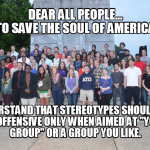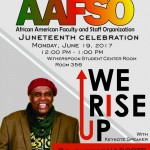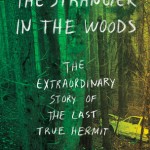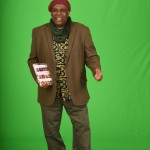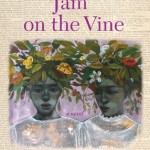
We are not the first generation of Americans to be fighting to claim the rights of full citizenship.
Yet, I know that right now some are struggling with the question of “how†to work for change against what may sometimes feel like insurmountable odds. I know that is a struggle because young people ask me for guidance; what can I do Dr. Nacoste?
 I just finished reading an important novel; “Jam on the Vine,†by LaShonda K. Barnett. A story of “colored people†in Jim-Crow East Texas, that begins in 1897. Our heroine, Ivoe, is a curious, intelligent child.
 “After May-Belle, Papa and them, Ivoe loved books best. Books were a friend to anyone who opened them.â€
 Her eargerness to read, her intelligence noticed and encouraged by a teacher, and through the help of people in her community Ivoe gets and takes a chance on education beyond high school. Narrow though that education was for a black woman, Ivoe learned all she could. Later, beyond that education, strong willed and focused Ivoe eventually founded one of the early newspapers of the black press (really only a newsletter at first
But this is no fairy-tale. For Ivoe, even finding romantic love was a risky long shot. But Ivoe does find it with another woman, Ona, who became Ivoe’s hope, challenger, friend, co-worker, companion and lover. About Ivoe’s ambitions to make a difference, Ona has the insight that “…a dream without love is the most dangerous weapon in the world.â€
 Ivoe ‘s family was her first emotional foundation. Her parents were firm, loving and imperfect. Lemon, her mother, a Muslim-African who early on cleans houses for a white family, but ends up developing her own business cooking tomato and fig jams. Ennis, Ivoe’s father, is a big, dark-skinned man who works as an iron-smith, dotes on his children (Ivoe, Timbo her borther, Irabelle her sister). Ennis, though, grows weary of Jim-Crow and leaves the family in the hope (futile in that time) of finding a better place for them in America
You see, Ivoe’s world is disheartening, vulgar, with vicious racial hate around every corner. Ivoe has to live through and see too much inequality and hot, violent, racial-hate aimed at black people. As she begins her work, Ivoe herself is accosted and beaten by police for what she writes in her newspaper.
 Yet with her education and focus, through it all, Ivoe finds a role; she finds a way to be of some use; she finds her voice. That is what makes the novel more than a novel. Lyrical in the writing, strong, vivid, heart wrenching and compelling in the storytelling, profound it the racial history of America it reviews, this book becomes a call to us all.
Find your way to make a difference in our difficult days. And no, we should not all be doing the same things at the same time. As was true in Ivoe’s time, many different hands are needed to make the work effective, to change the story we are living.
 In that way, Ivoe’s story can be a motivator. Ivoe’s story, you see, is an example. Yes, this is a fiction, but a fiction crafted from our American history in which strong and determined persons found ways to make a positive difference.
 Ivoe’s story shows that even in the darkest hours of America’s racial nightmare, there was something that could be done. Many different people found large and small roles to participate in working for social justice
 We are still in the fight. There is still much work to do. For a little motivation read “Jam on the Vine.â€



